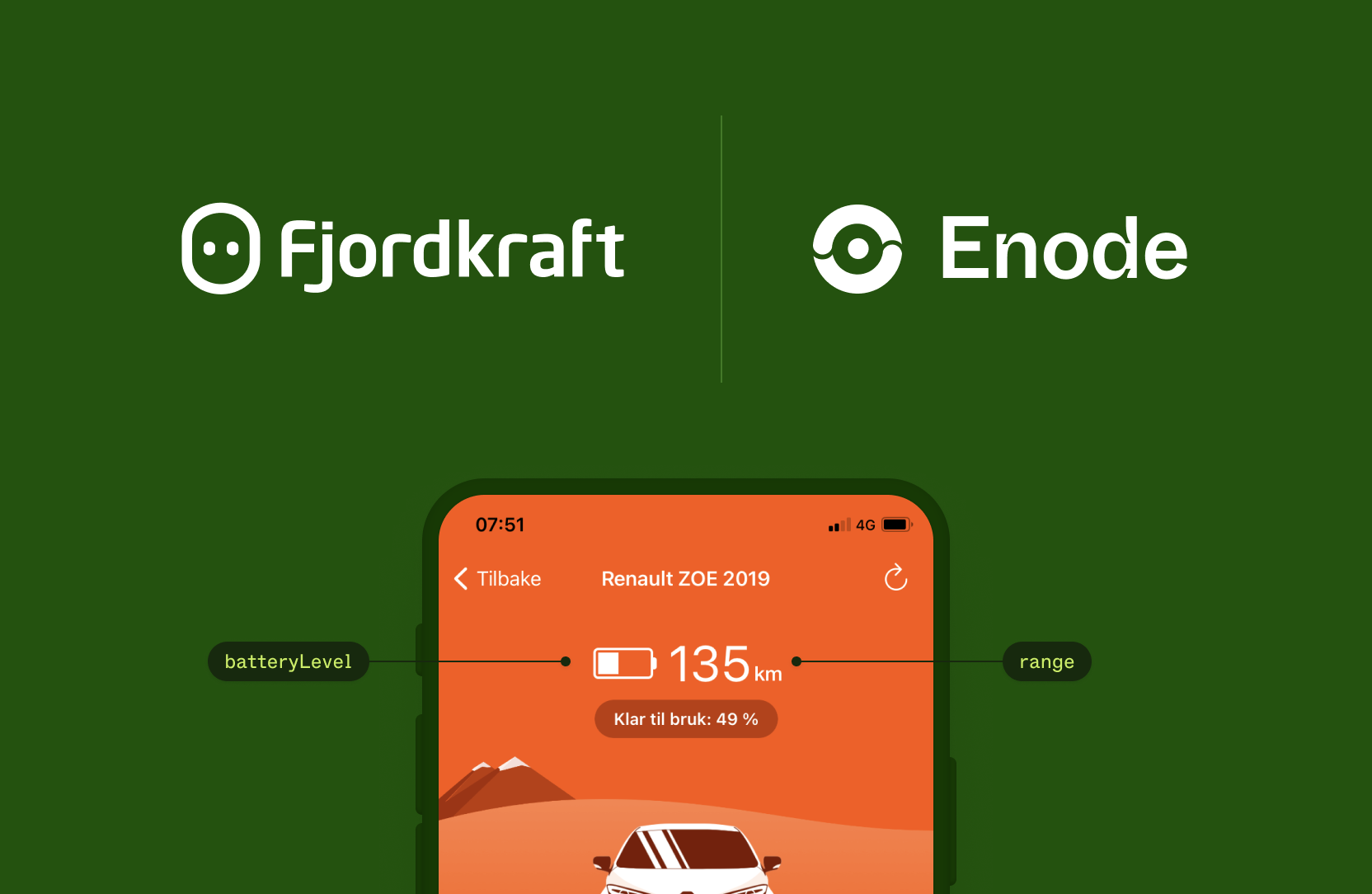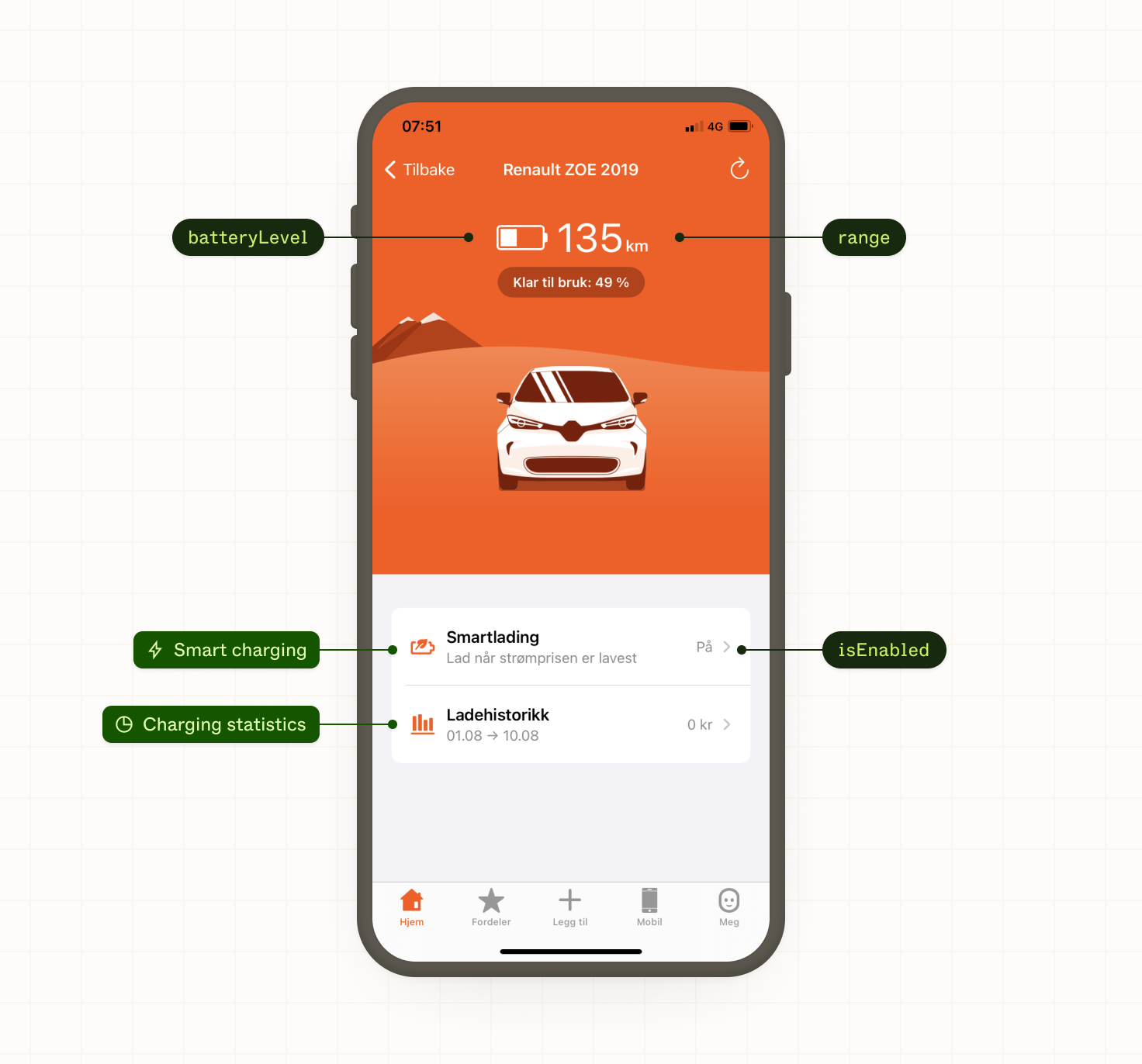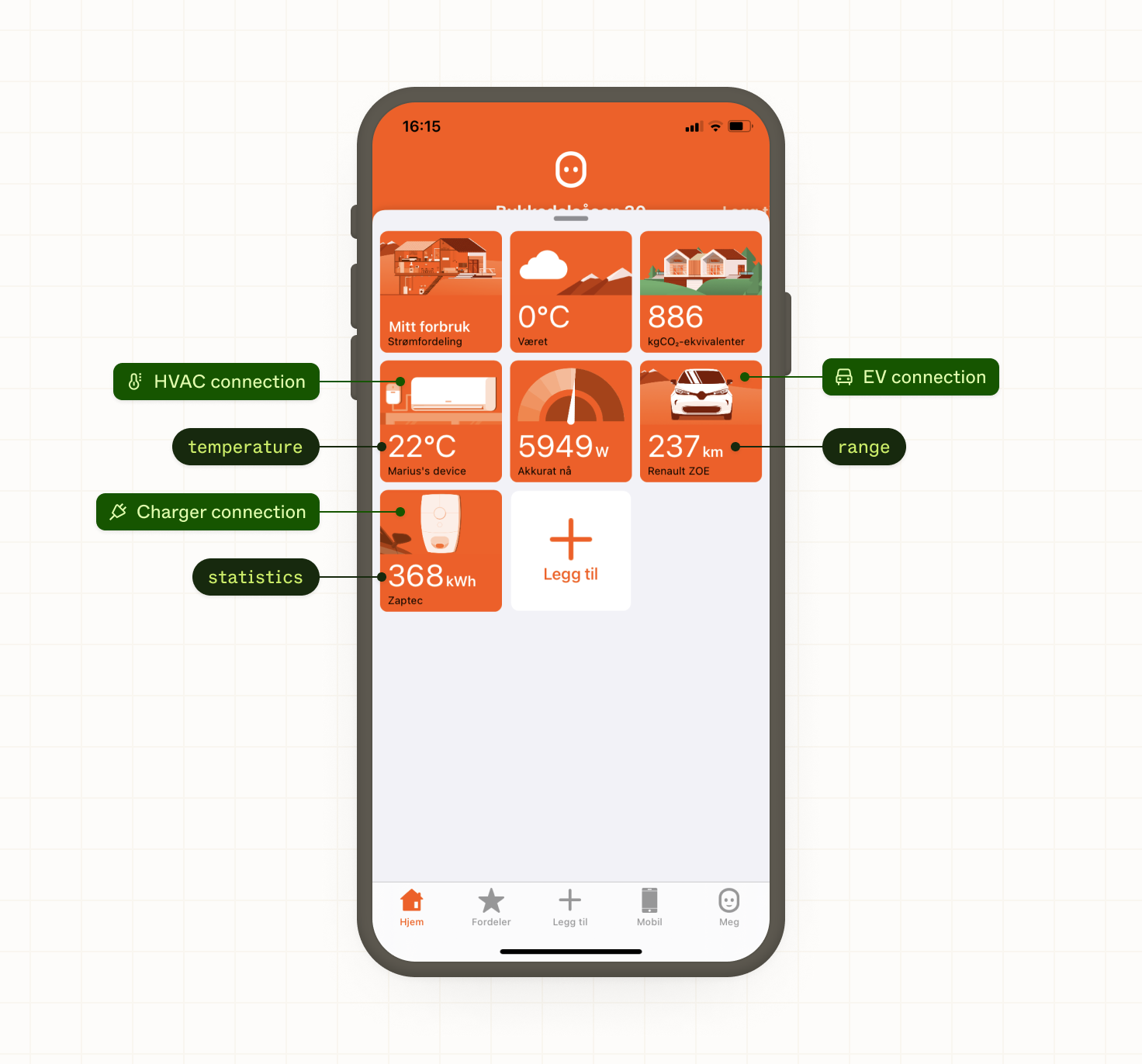Enode helps Fjordkraft cut customer EV charging costs by 20% and build the future of energy management

- ~20%
- Lower home EV charging costs for customers who activate smart charging
About 1.4 million people rely on Fjordkraft to deliver their energy – and to help them keep their energy costs as low as possible, too.
Fjordkraft has long been committed to both. That’s why, in 2019, Fjordkraft launched their app. It gave customers an overview of their energy usage, and a quick, easy way to pay their bills. The plan was to scale the app into an energy hub, where customers could monitor, manage and optimize every aspect of their energy supply.
But that proved a challenge. It relied on surfacing real-time data from customers' different energy devices – a complex engineering challenge for which Fjordkraft needed a specialist partner.
Challenge: Smart Charging
The first use case Fjordkraft wanted to offer via its app was smart charging for electric vehicles (EVs).
Norway leads the world in EV adoption – two in every three new cars sold in 2022 were EVs – so support for EVs is table stakes for any energy management app. But Fjordkraft wanted to do more than just show customers data about their car and its battery – customers could already access that information in their OEM apps. Fjordkraft wanted to give customers a way to save money and reduce their carbon footprint.
The timing couldn’t have been better. In summer 2020, Norwegian electricity prices reached a record low. It cost just $0.06 per kWh, or $4 to fully charge an EV. But, the global energy crisis meant that prices skyrocketed. By 2022, it cost around $40 to charge the same EV – a 10x increase in two years.
Fjordkraft wanted to empower customers to automatically charge their EVs when prices were lower or more renewable energy was available - Smart Charging as most people call it. This required them to control the vehicle charging in real time and access data like state of charge (SoC) directly from the vehicle, ideally via a software-only solution based on the EV APIs. But there was no consistency in the speed or type of data that each EV brand’s API delivered. Fjordkraft would have to spend a huge amount of time and technical resources to build and maintain its own integrations, standardize the data in its app, and deliver a reliable service for every EV brand. Or, they could find a specialist partner who could take care of the complex technical work, while they focused on improving the customer experience.
Early conversations revealed that while several providers could connect to and access data from EVs, very few were even thinking about smart charging. Smart charging would enable Fjordkraft customers to reduce their carbon footprint and save money. But, it was something the team at Enode was working on. Furthermore, there was just one integration to manage with Enode.
Fjordkraft launched smart charging with 4 brands in its EV integration lineup. That number soon jumped to 15 as the team at Enode added more brands. The results were significant: tens of thousands of EV drivers connected their car to the Fjordkraft app, and activated smart charging. They’ve already saved thousands of dollars: the average cost to charge their EV is around 20% lower for smart charging customers. They’re also more engaged with the Fjordkraft app, and demand for more smart features is increasing. One that Fjordkraft already has on the roadmap is enabling smart charging by connecting to EV chargers, rather than EVs themselves, as the integrations tend to be more robust and reliable for demand response.

Challenge: Seamless energy management
But, Fjordkraft wanted to go beyond just connecting to EVs. They wanted to connect to more energy devices in their customers’ homes - build an energy super-app so customers could automatically save money and reduce their carbon footprint in a single app. In particular, Fjordkraft wanted to add heating, ventilation and air conditioning (HVAC) units to its app. Thousands of Norwegians have thermostats and heat pumps, which can be programmed to automatically manage the temperature of their houses in response to fluctuations in the supply of renewable energy.
Through the Fjordkraft app, users can choose fixed or spot pricing. But the user experience around both was disjointed. Though smart meters helped customers understand and manage their consumption more effectively than manual monthly meter readings, the process still wasn’t optimized.
With Enode, Fjordkraft can connect to their customers’ HVACs and other energy devices (DERs). Fjordkraft is able to give its customers a complete overview of their energy consumption – including spot pricing costs and estimated payback – in the app.

There’s more still to come. With the help of Enode, Fjordkraft is building up one of the largest residential virtual power plants (VPPs) in the Norwegian market. Together with Statkraft and Enode they are actively using this VPP in the local flexibility market to increase the revenue from connected hardware. The gains of which will be distributed to the consumers who are actively helping balance the grid with their EVs and other energy devices.
The partnership between Enode and Fjordkraft has been a win-win from the start. They have enabled us to become a market leader in EV connections and smart charging. The Enode team is years ahead of the competition when it comes to EV APIs and smart energy management and we look forward to pushing the partnership further with connection to more energy hardware and demand response
- Marius Øxenbjerg, Business Developer at Fjordkraft
